Introduction
UKMC is committed to maintaining a safe, inclusive and respectful environment for all members of its community. The College values equality, diversity and mutual respect, ensuring that every student and staff member is treated with dignity and fairness in all areas of study and work.
UKMC does not tolerate bullying, harassment, discrimination, sexual misconduct or violence in any form. Such behaviours undermine wellbeing, safety and academic success, and will be actively challenged and addressed in line with this policy and the College’s Equity, Diversity and Inclusion Policy.
All members of the College community are expected to uphold standards of respectful conduct, open communication and clear consent in their interactions. The College is committed to responding to all disclosures or reports of unacceptable behaviour with sensitivity, impartiality and discretion, ensuring appropriate support and access to specialist services.
UKMC will work with external experts and advisors, as well as within our governance to continually improve its approach to prevention and response. Proven instances of bullying, harassment, discrimination or violence may result in disciplinary action, up to and including termination of employment or exclusion.
Our Commitment
UKMC is committed to providing a learning and working environment that prioritises the student experience and fosters a culture of respect, inclusivity, and support in line with our values. We are dedicated to promoting diversity, equity, and harmonious relationships across our campuses, ensuring that every student feels safe, valued, and able to thrive.
Our goal is to inspire positive behavioural and cultural change, support student development, and ensure that our community upholds mutual legal, ethical, and professional standards. We actively encourage good relations, and removing barriers of bullying, harassment, sexual misconduct, and hate crime, embedding inclusivity into every aspect of student life.
All allegations of harassment or misconduct will be taken seriously and addressed fairly, with integrity and professionalism. Concerns raised in good faith will be handled with sensitivity, confidentiality, and respect for the rights of all parties, ensuring that no student is victimised for speaking out.
Through this commitment, UKMC continues to engage with our wider communities, uphold social responsibility, and create an environment that reflects our values of respect, innovation, and integrity.






